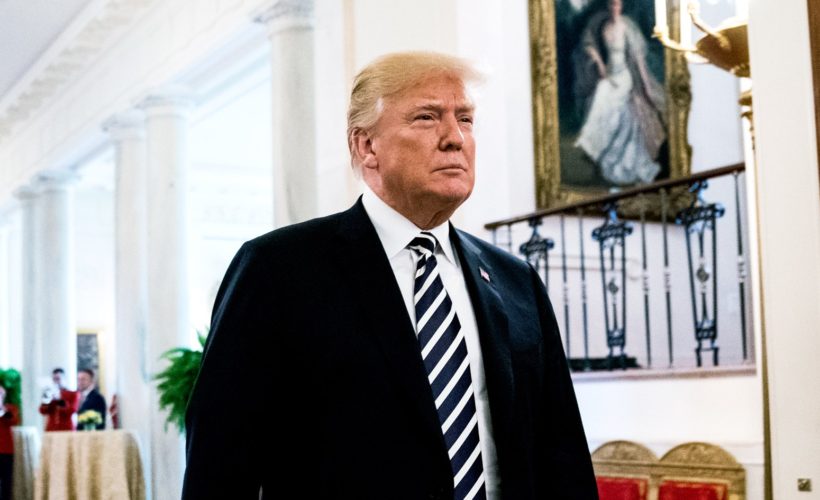President Donald Trump has long promised to get tough on China. So why is he so worried about saving jobs there?
Last week the Chinese telecommunications giant ZTE said it had halted its major operations after the US government moved to ban US companies from selling software or components to ZTE. On Sunday, Trump tweeted that he and Chinese President Xi Jinping were working together to save ZTE. “Too many jobs in China lost,” Trump tweeted. “Commerce Department has been instructed to get it done!”
Lifting sanctions on ZTE might help defuse a budding trade war that threatened US agriculture exports. In exchange for lifting the sanctions, China might rescind planned tariffs on products like pork and ginseng that were themselves responses to the US’s planned tariffs on Chinese steel and aluminum, the Wall Street Journal reports. Chinese tariffs on US farm goods could be a huge headache for Trump and Republicans in the midterms, since red states and rural voters could be the hardest hit.
ZTE’s plan to shut down without US-made hardware and software shows how interconnected the world’s two largest economies remain, despite mutual fears and rising tensions. Chinese companies still rely on US technology. And US tech firms make a large share of their products in China.
The ZTE sanctions could have wider ranging impacts on US-China relations. The sanctions were so excessive that they threaten to damage any trust the Chinese government might have in trade relations in the US, says Susan Shirk, chair of the 21st Century China Center at the University of California, San Diego. “Telling ZTE that it can’t buy US technology signals to China that it can be excluded from the US technology market at any time,” says Shirk, a former US trade negotiator. That just motivates China to build its own alternatives to US technology—exactly what the US would prefer it not do.
Chas Freeman, a senior fellow at Brown University’s Watson Institute, agrees. If China can’t rely on supply chains that include US components, the country will create its own supply chains, says Freeman, who served as President Richard Nixon’s interpreter during his famous 1972 visit to China.
Some critics of Trump’s move to ease the ZTE sanctions, such as Senator Marco Rubio (R-Florida), have argued that the decision will make it easier for Chinese telecommunications companies to spy on Americans. But Shirk points out that the sanctions didn’t prevent the sale of ZTE products in the US and weren’t imposed due to espionage concerns. They stemmed from ZTE’s violations of sanctions against other countries.
Last year ZTE admitted that it violated US export laws by selling phones with US-made software and hardware to countries such as Iran and North Korea. The company agreed to pay a fine of about $900 million, fire four senior employees, and discipline many others. Last month, the U.S. Department of Commerce said the company had failed to discipline some of its employees and, as a result, imposed the sanctions.
Derek Scissors of the free-market think tank American Enterprise Institute says that a deal to reduce the severity of the ZTE sanctions will lower the odds of a trade war in the short term, but could weaken the US’s position in the long term. “The ZTE sanctions were the strongest action the Trump administration has taken against China, by far,” Scissors says. “Why would China believe that the US is serious about taking difficult steps after this?”
Shirk hopes that reducing or eliminating the sanctions could help smooth over US-China relations. But Freeman isn’t so optimistic. Even if the administration can come to a deal with China over agricultural tariffs, it won’t fix the deeper rift between the two countries, he says. Freeman argues that infighting within the Trump administration has left an incoherent, at best, policy towards China. If Trump administration officials can’t agree internally on what they want, they won’t be able to negotiate deals with China.
More Great WIRED Stories
-
If Trump is laundering Russian money here’s how it would work
-
Spot the contraband in these airport baggage x-rays
-
How a DNA transfer nearly convicted an innocent man of murder
-
PHOTO ESSAY: Ominous views of Japan’s new concrete seawalls
-
Best robot vacuums: Pet hair, carpets, hardwood floors, and more
Source:WIRED











